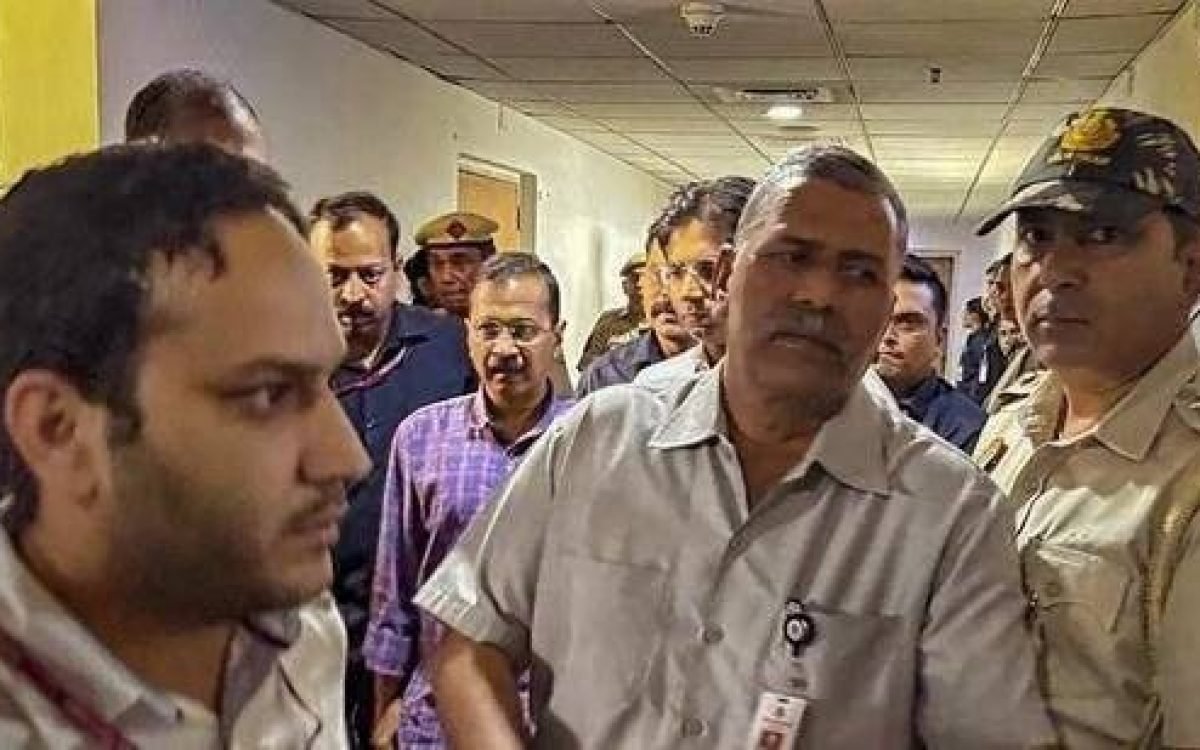The recent arrest of Chief Minister Arvind Kejriwal has ignited a flurry of speculation and controversy, with allegations of political conspiracy swirling around the unfolding events. Let’s delve into the intricacies of Kejriwal’s arrest and its broader implications on the political landscape.
Kejriwal’s assertion that his arrest is part of a political conspiracy comes as no surprise, given the contentious nature of Indian politics. His remarks, made as he was produced in court, underscore the deep-seated tensions between opposing political factions.
The backdrop of Lieutenant Governor Vinai Kumar Saxena’s statement, asserting that the Delhi government will not be run from jail, adds another layer of complexity to the situation. Kejriwal’s defiance in the face of adversity reflects his determination to maintain his political stature amidst mounting challenges.
The legal battle surrounding Kejriwal’s arrest further intensifies the drama. The Delhi High Court’s issuance of notice on Kejriwal’s plea seeking release and challenging the legality of his arrest highlights the judicial scrutiny under which the case is unfolding.
Kejriwal’s arrest, occurring on March 21 after the denial of interim protection by the High Court, has been vehemently contested by his party, the Aam Aadmi Party (AAP). AAP alleges that Kejriwal’s arrest is a premeditated attempt to besmirch his reputation ahead of the Lok Sabha polls, emphasizing the political undercurrents at play.
Despite his incarceration, Kejriwal’s continued governance from jail through the issuance of orders showcases his unwavering commitment to his role as Chief Minister, further fueling the intrigue surrounding his arrest.
On the other hand, the Enforcement Directorate (ED) contends that Kejriwal’s arrest is grounded in evidence linking him to alleged money laundering activities associated with the now-defunct 2021-22 excise policy. This assertion adds a legal dimension to the controversy, highlighting the gravity of the allegations against Kejriwal.
As the saga unfolds, it raises pertinent questions about the intersection of power, politics, and justice in India’s democratic framework. The outcome of Kejriwal’s legal battle will undoubtedly reverberate across the political spectrum, shaping the future landscape of Indian politics.
In conclusion, Arvind Kejriwal’s arrest epitomizes the complex interplay between political machinations and legal proceedings in India. It serves as a stark reminder of the inherent challenges and intricacies of democratic governance in a diverse and dynamic nation like India.









